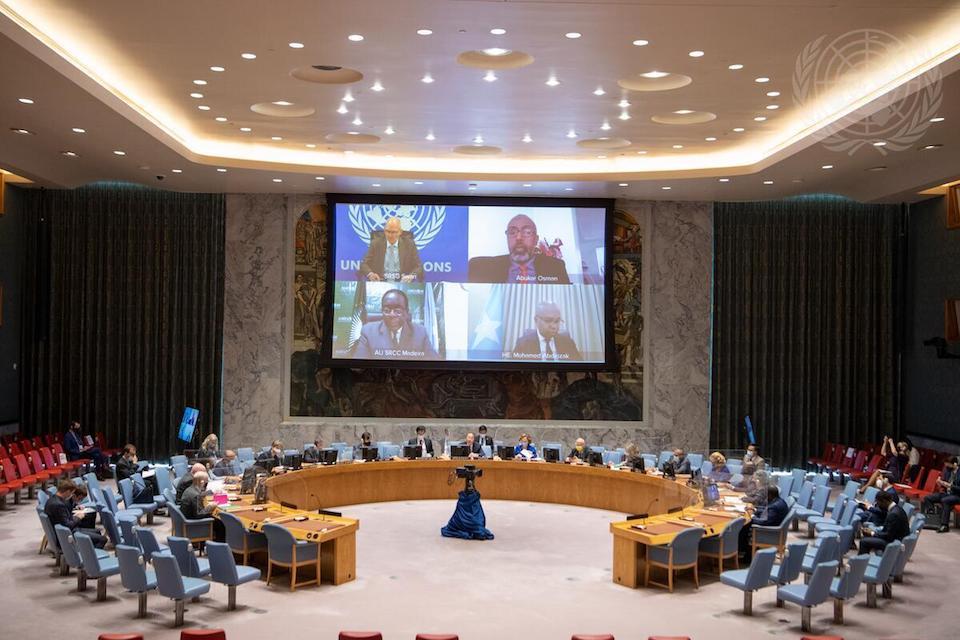Promoting an inclusive and effective government to ensure political stability in Somalia
Statement by Ambassador Barbara Woodward, UK Permanent Representative to the UN, at the Security Council briefing on Somalia

Thank you, Mr President, and it is good to be back to the Security Council chamber. I’d like to start by thanking the briefers, Special Representative Swan and Ambassador Madeira, and His Excellency Foreign Minister Abdirizak.
Mr President, the United Kingdom welcomes the opening of a new round of talks in Mogadishu and their ongoing positive progress, aimed at reaching consensus on an electoral model, and we give our full support to Prime Minister Roble as he chairs this process.
I would like to make three points:
First, as talks in Mogadishu continue, and we very much welcome the updates we’ve received, we continue to urge the Federal Government of Somalia and Federal Member States to continue their constructive dialogue, based on the 17 September agreement and the recommendations of the Baidoa technical committee. To ensure that inclusive, credible elections can take place as soon as possible and we can break out of the political impasse that risks exacerbating insecurity and instability in Somalia.
This leads me to my second point. Political turmoil has direct consequences for Somali security, as we saw only last month. The United Kingdom strongly condemns the violence that took place in Mogadishu on 25 April. We urge all sides to continue to show restraint and engage in dialogue to avoid a repeat of these scenes.
This instability leads, tragically, to loss of life, but it also threatens the transition towards Somali-led security laid out in the Somali Transition Plan and endorsed by this Council through the AMISOM resolution. The UK encourages all parties, in spite of current challenges, to continue to deliver the Somali Transition Plan and to work constructively to determine the nature of a new mission from 2022.
On this note, I welcome the engagement between the United Nations Security Council and African Union to renew the AMISOM authorisation and look forward to further, close engagement over the coming months as we discuss the shape and mandate of a new mission.
Unfortunately, this division and instability also benefits Al Shabaab. While political leaders focus on the elections, government reserves are dwindling and Al Shabaab is growing its profits and its influence. Resolving the current impasse will enable everyone to focus on common challenges: defeating Al Shabaab and supporting development in Somalia.
Mr President, this brings me to my third point. The ongoing political instability risks exacerbating Somalia’s already dire humanitarian outlook. The 25 April clashes alone displaced tens of thousands of Somalis and we are deeply concerned about the risk of further violence, especially if the talks fail. Respect for International Humanitarian Law and the protection of civilians is paramount for Somali state legitimacy. Political violence only compounds the impact of the existing threats of COVID-19, flooding, drought, food insecurity, and locust swarms, which all pose a substantial risk to the long-term stability of Somalia. Somali leaders should continue to work to address the impacts of these issues.
Finally, Mr President, the UK will maintain its support to Somalia in both mitigating the impacts of these events and working to build longer-term resilience against these problems. We call on the international community to do the same. A long-term approach to alleviating these problems is the only way to break the cycle of dependency on international humanitarian aid. And, fundamentally, the Somali people need and deserve effective and inclusive governance to support this – there must be a political settlement on how to share power and resources in a federated Somalia. Somalia’s leaders need to be able to turn their attention to managing these problems, which affect the lives of millions of Somalis.
Thank you, Mr President.